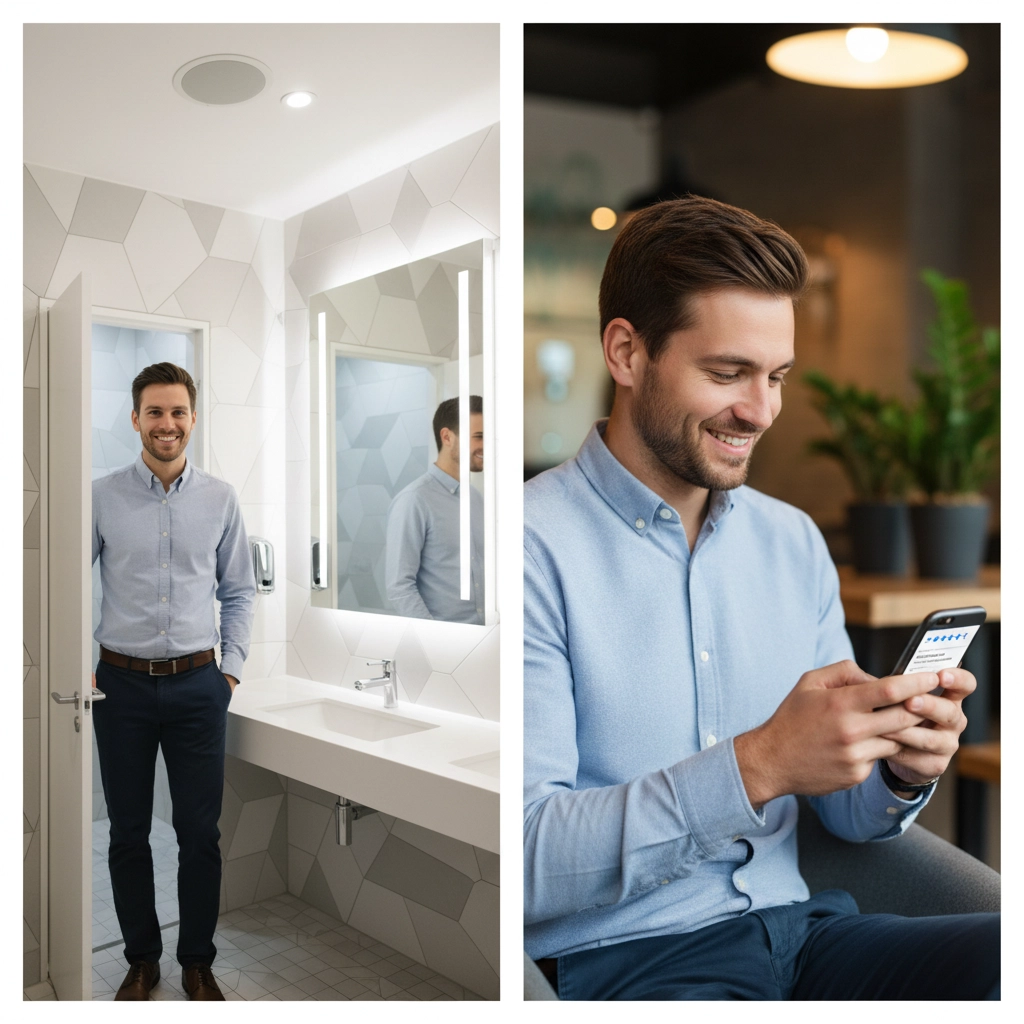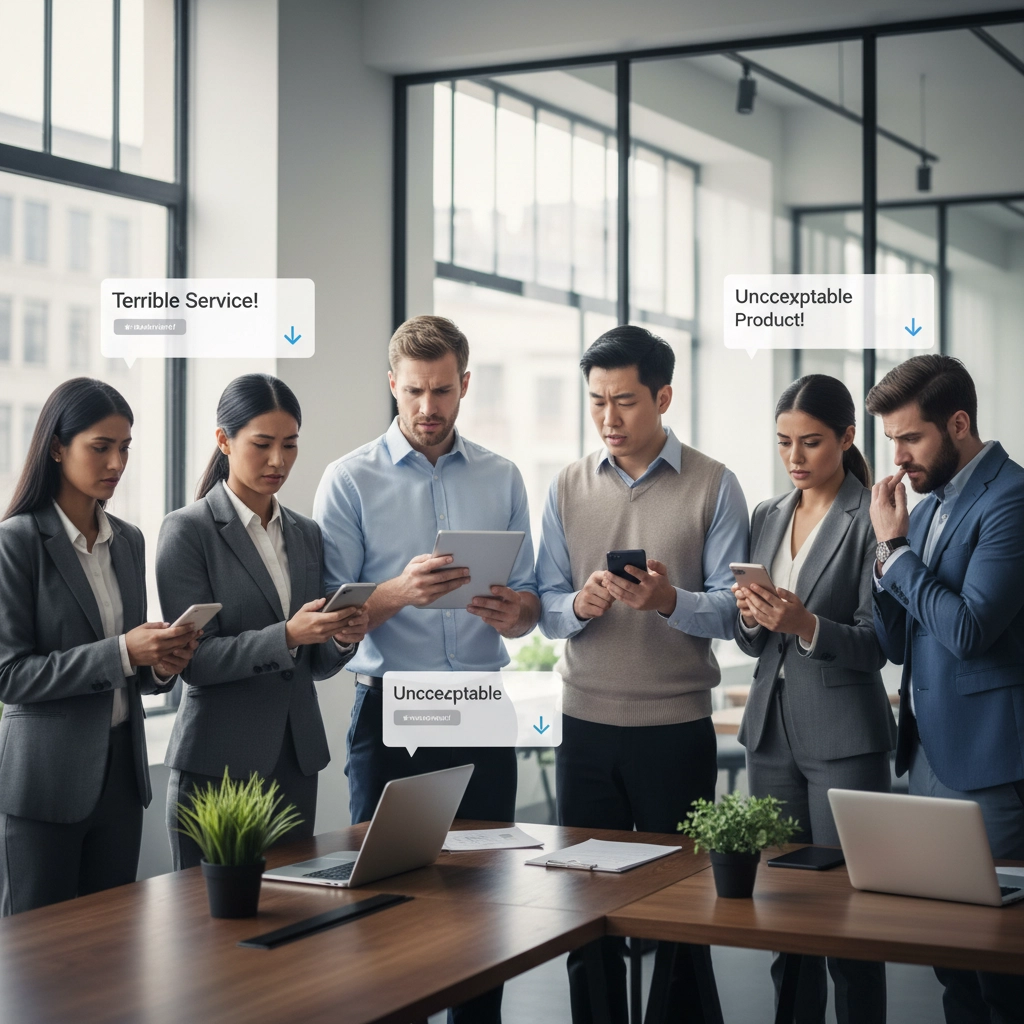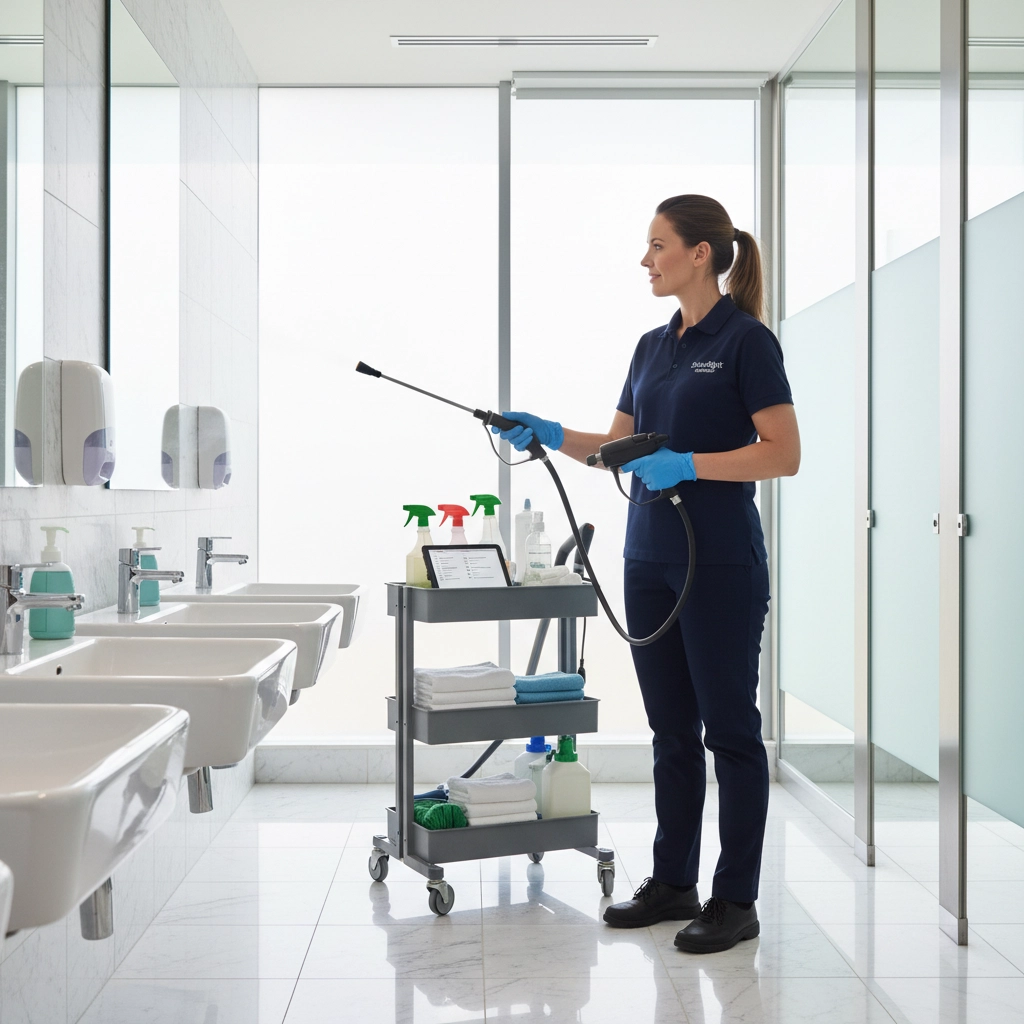The Hidden Psychology Behind Why 92% of Customers Judge Businesses by Bathroom Cleanliness Alone
- Valerie Shaw
- Nov 7, 2025
- 4 min read
Here's a stat that'll blow your mind: 92% of customers will judge whether they'll return to a business based solely on bathroom cleanliness. Yep, you read that right: not the product quality, not the customer service, not even the prices. The bathroom.
As cleaning professionals, this isn't just a random fun fact to share at parties. This is pure gold for understanding how to position your services and why your work matters more than most business owners realize.
The Vulnerability Factor: Why Bathrooms Hit Different
Think about it: when someone walks into a bathroom, they're entering one of the most vulnerable spaces in any building. They're literally lowering their guard in a private moment. If that moment gets interrupted by dirty surfaces, empty dispensers, or questionable odors, it creates an instant psychological wound.
It's not just about being grossed out. It's about trust being broken when people are at their most defenseless. That's why 75% of customers will think twice about returning after a bad restroom experience, and 78% will decide to leave a business immediately if they encounter a dirty space.

This vulnerability factor is exactly why your cleaning services aren't just about aesthetics: you're literally protecting your clients' most critical trust-building moments. Every time someone has a positive bathroom experience, you've just secured customer loyalty for your client.
The Inference Game: What Dirty Bathrooms Really Signal
Here's where the psychology gets really interesting. When customers see a dirty bathroom, their brains don't just think "ew, gross." They start playing detective, and the conclusions they draw can destroy a business overnight.
In restaurants: "If they can't keep the bathroom clean, what's happening in the kitchen?" This logical leap is so powerful that 75% of diners will leave immediately if they encounter bathroom odors, and 73% will leave negative online reviews afterward.
In offices: "If management doesn't care about employee spaces, how do they treat their customers?" Research shows 84% of customers believe dirty restrooms directly damage a business's image and reflect poor management.
In retail: "If they're cutting corners on basic cleanliness, what else are they skimping on?" This creates doubt about product quality, return policies, and overall business integrity.
The Social Media Multiplier Effect
Here's where that 92% stat gets even scarier for business owners: and more valuable for you as a cleaning professional. That negative bathroom experience doesn't just affect one customer anymore. It becomes weaponized through online reviews.
A staggering 90% of potential customers will avoid trying a business based solely on reading reviews that mention poor housekeeping. They don't need to experience the dirty bathroom themselves: just reading about it is enough to drive them away.

This means every bathroom you clean isn't just serving current customers: it's protecting against future negative reviews that could cost your clients thousands in lost business. When you position your services this way, you're not just a cleaning company. You're a reputation management service.
The Effort-Investment Paradox: Why It Feels Personal
This is the psychological kicker that makes bathroom cleanliness so emotionally charged for customers. Bathrooms are relatively easy to clean compared to other business operations. When customers encounter dirty restrooms, they experience cognitive dissonance: "This would be simple to fix, so why haven't they?"
It's not perceived as incompetence: it's perceived as indifference. And indifference to customer comfort feels like a personal slight. That's the emotional trigger that transforms a simple cleanliness issue into a loyalty-destroying experience.
Industry-Specific Psychology Patterns
Different industries trigger different psychological responses around bathroom cleanliness:
Healthcare facilities: Dirty bathrooms trigger anxiety about infection control and medical safety standards. Patients already feel vulnerable due to health concerns, making cleanliness failures feel like genuine threats to wellbeing.
High-end retail: Bathroom condition becomes a status signal. Customers paying premium prices expect premium experiences throughout their visit. A subpar bathroom feels like false advertising.
Family businesses: Parents become hypervigilant about bathroom cleanliness when children are involved. A family restaurant with poor bathroom maintenance can lose entire family customer bases in a single visit.

The Competitive Advantage Hidden in Plain Sight
Here's what most business owners don't realize: bathroom cleanliness isn't just about avoiding negative experiences: it's about creating positive differentiation. The research shows 71% of customers are more likely to return and spend more at businesses with clean, well-maintained restrooms.
This creates a massive opportunity for cleaning professionals who understand the psychology. You're not just preventing problems: you're creating competitive advantages that directly impact your clients' bottom lines.
Leveraging This Knowledge to Win More Contracts
Now that you understand the psychology, here's how to use it in your sales conversations:
Stop talking about cleaning: start talking about customer retention. Instead of "We'll keep your bathrooms clean," try "We'll protect the 92% of customers who judge your business by bathroom cleanliness alone."
Focus on ROI, not just cost. Frame bathroom cleaning as reputation insurance. Calculate the lifetime value of customers your client would lose from poor bathroom experiences versus your service investment.
Use industry-specific language. For restaurants, talk about health department compliance and customer confidence in kitchen cleanliness. For offices, discuss employee satisfaction and client perception during meetings.

Emphasize the social media protection angle. Remind prospects that one negative review mentioning bathroom cleanliness can drive away 90% of potential customers who never even visit.
The Systems Approach: Beyond Basic Cleaning
Smart cleaning professionals are evolving beyond basic cleaning to create systematic approaches that address the psychological factors:
Visible proof systems: Use QR codes or proof-of-service reports that show cleaning frequency and standards. This gives customers visible evidence that cleanliness is being actively maintained.
Psychological comfort features: Stock quality supplies, ensure proper lighting, and maintain consistent standards. These details signal professional management and attention to customer experience.
Preventive maintenance protocols: Develop systems that catch problems before customers encounter them. This proactive approach prevents the trust-breaking moments that create negative associations.
The Bottom Line for Cleaning Professionals
That 92% statistic isn't just a number: it's a roadmap to positioning your services as business-critical investments rather than basic maintenance expenses. Every bathroom you clean is protecting customer loyalty, preventing negative reviews, and maintaining competitive advantages your clients probably don't even realize they have.
When you understand the psychology behind bathroom cleanliness, you stop being a commodity service provider and become a strategic business partner. Because in the end, you're not just cleaning bathrooms: you're protecting the most vulnerable moments in your clients' customer relationships.
And that's worth way more than your current rates suggest.







Comments